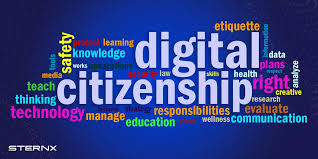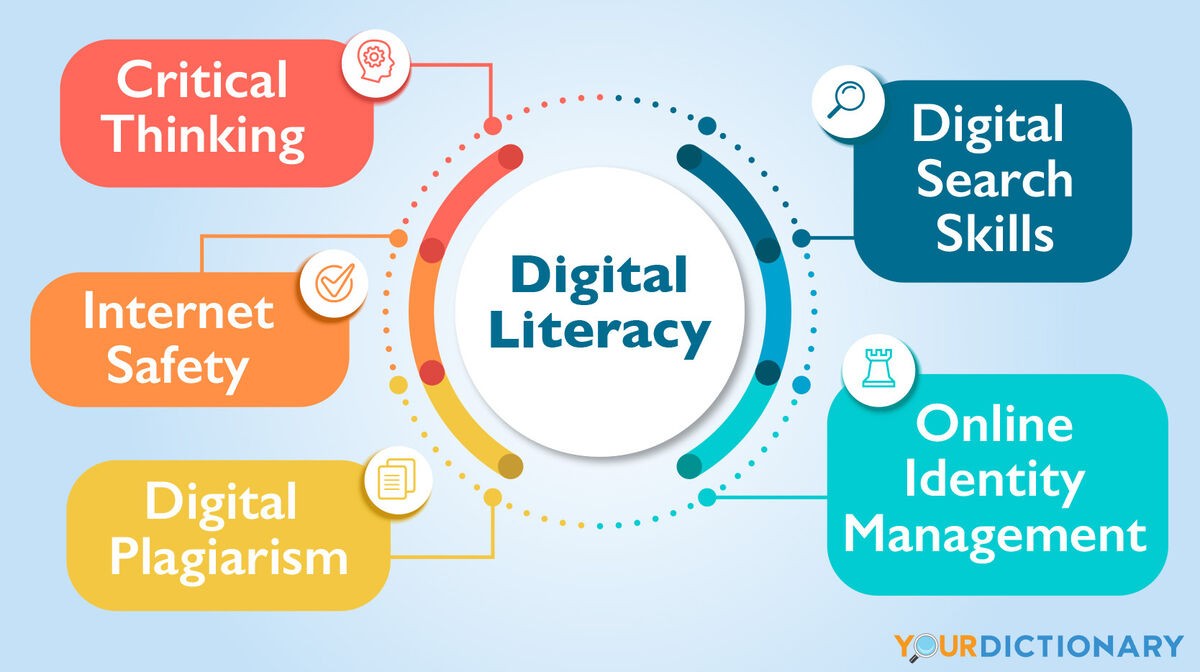Digital Citizenship
Completion requirements
 Lets get started on Digital Citizenship
Lets get started on Digital Citizenship
View
Digital Literacy
 Digital literacy encompasses a vast array of skills and knowledge necessary to navigate the ever-evolving digital world effectively. It empowers individuals to access, understand, create, communicate, and evaluate information found online. In today's society, where technology permeates nearly every aspect of life, possessing strong digital literacy skills is essential for success.
Digital literacy encompasses a vast array of skills and knowledge necessary to navigate the ever-evolving digital world effectively. It empowers individuals to access, understand, create, communicate, and evaluate information found online. In today's society, where technology permeates nearly every aspect of life, possessing strong digital literacy skills is essential for success.
- Information Literacy: This core component involves the ability to find, evaluate, and use information effectively. It includes critical thinking skills to assess the credibility of sources, understanding different search strategies, and proper citation practices.
- Technology Literacy: This involves the ability to use and operate various digital tools and technologies. This could include basic computer operations, using software applications, and troubleshooting technical issues
- Communication Literacy: Effective communication online requires understanding different digital communication platforms (email, social media, etc.) and adapting communication styles accordingly. It also encompasses online etiquette and responsible online behaviour.
- Safety and Security: Digital literacy involves understanding online safety practices like password management, recognising phishing scams, and protecting personal information online.
- Problem-Solving: The ability to troubleshoot technical issues and solve problems that arise in the digital environment is crucial
Benefits of Digital Literacy
- Improved Learning: Strong digital literacy skills enhance the ability to access and synthesise information, leading to better learning outcomes.
- Enhanced employability: Today's jobs increasingly require strong digital literacy skills. These skills can make individuals more competitive in the job market.
- Informed Decision-Making: Critical thinking skills honed through digital literacy empower individuals to make informed decisions about the information they encounter online.
- Effective Communication: Understanding digital communication platforms and adapting communication styles allows for better connections with others online.
- Increased Participation: Digital literacy enables participation in online communities, fostering a sense of belonging and connection.
Challenges to Digital Literacy
- The Digital Divide: Unequal access to technology and the internet creates a digital divide, limiting opportunities for those who lack access.
- Misinformation and Disinformation: The abundance of information online, coupled with the rise of "fake news," makes it challenging to discern credible sources from misleading information.
- Cybersecurity Threats: The constant evolution of cyber threats necessitates ongoing learning to stay safe online.
- Rapid Technological Change: Keeping up with new technologies and advancements requires continuous learning and adaptation.
- Educational Initiatives: Integrating digital literacy education into school curricula can equip younger generations with these crucial skills.
- Public Library Programmes: Libraries play a vital role by offering digital literacy workshops and training programmes to the community.
- Online Resources: Numerous online resources and tutorials provide opportunities for individuals to learn and improve their digital literacy skills at their own pace.
- Individual Initiative: A commitment to continuous learning and exploring new technologies is essential to staying current in the digital world.
